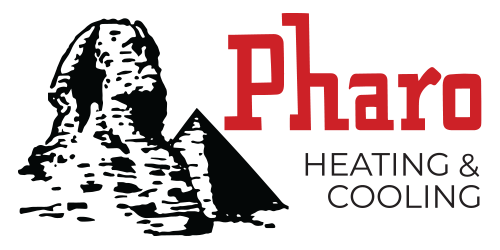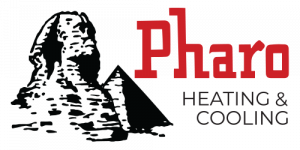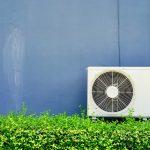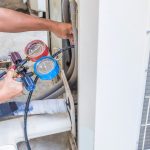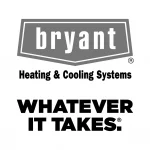The Impact of Wisconsin’s Allergy Seasons on Indoor Air Quality
In Wisconsin, the shift of seasons brings about a vibrant display of nature and, unfortunately for many, a host of airborne allergens that can drastically impact indoor air quality (IAQ).
As trees bud, flowers bloom, and crops are harvested, the air becomes laden with different types of pollen, mold spores, and other allergens. These external changes significantly affect the quality of the air inside homes and businesses.
Understanding how these seasonal changes influence indoor environments and how HVAC systems can mitigate these effects is important for maintaining a healthy indoor space.
Understanding Seasonal Allergies in Wisconsin
Wisconsin experiences distinct allergy seasons. In the spring, tree pollen begins to circulate as early as March, followed by grass pollen in late spring and early summer. Come fall, weed pollen and mold spores become the predominant allergens.
Each of these seasons poses unique challenges to maintaining good indoor air quality, as allergens infiltrate homes through open windows, doors, and on clothing and pets.
Impact on Indoor Air Quality
Once inside, allergens mix with household dust and other particulates, contributing to a range of respiratory issues, from mild allergic reactions to severe asthma attacks. Poor indoor air quality can exacerbate these symptoms, particularly in environments that lack proper ventilation or HVAC systems.
Enhancing IAQ with HVAC Solutions
1. Maintaining Optimal Humidity Levels
One of the key strategies in combating seasonal allergies through HVAC systems involves maintaining proper indoor humidity levels. Ideally, indoor humidity should be kept between 30% and 50%.
Humidity levels above this range can encourage the growth of mold and dust mites, potent allergens, while air that’s too dry can irritate the respiratory tract and eyes, exacerbating allergy symptoms.
Utilizing whole-home humidifiers and dehumidifiers integrated into your HVAC system can help stabilize indoor humidity and create a less hospitable environment for allergens.
2. Advanced Air Filtration Systems
Air filtration systems play a pivotal role in capturing and removing airborne allergens from indoor spaces. High-efficiency filters can trap particles as small as 0.3 microns with a 99.97% efficiency, including pollen, pet dander, and dust mites.
Upgrading the air filters in your HVAC system to a higher MERV rating can significantly reduce the concentration of allergens in your home.
3. Regular HVAC Maintenance
Routine maintenance of HVAC systems is key to ensure they are not contributing to indoor air quality problems. This includes regular replacement of air filters, cleaning of the HVAC equipment, and inspections of system components for proper operation.
Ensuring that the system is not harboring mold growth and that its components are clean and functional aids in reducing the circulation of allergens.
4. Ventilation Improvements
Enhancing the ventilation in your home can significantly IAQ by reducing pollutant levels, including allergens. Energy recovery ventilators (ERVs) can be particularly effective as they exchange the stale indoor air with fresh, filtered outdoor air, balancing humidity levels and reducing allergens without sacrificing energy efficiency.
Conclusion
For residents of Wisconsin, managing indoor air quality is a crucial aspect of minimizing the impacts of seasonal allergies. By understanding the relationship between outdoor allergens and indoor air quality and implementing robust HVAC solutions, homeowners can enjoy cleaner air and fewer allergy symptoms year-round.
Investing in the right systems and regular maintenance can transform your home into a sanctuary against the seasonal surge of allergens, providing relief and comfort regardless of the time of year.
At Pharo Heating & Cooling, we are committed to helping you achieve optimal indoor air quality. With advanced HVAC solutions tailored to Wisconsin’s unique climate and allergy challenges, we ensure that your home remains a comfortable and healthy environment throughout all seasons.
Contact us today to discuss how we can enhance your home’s air quality and help you breathe easier.
